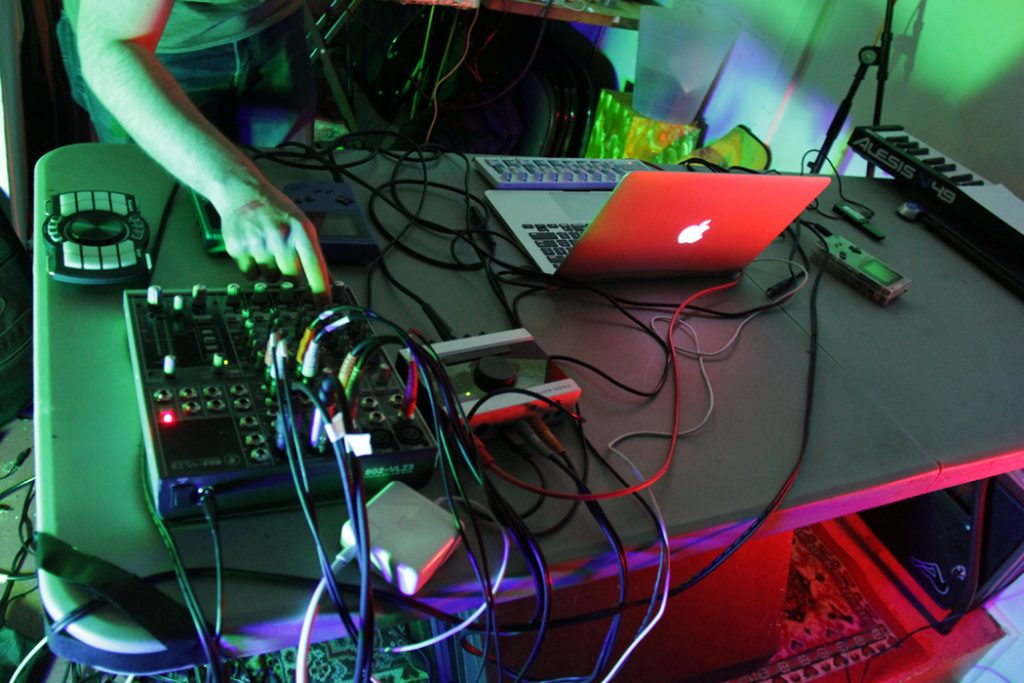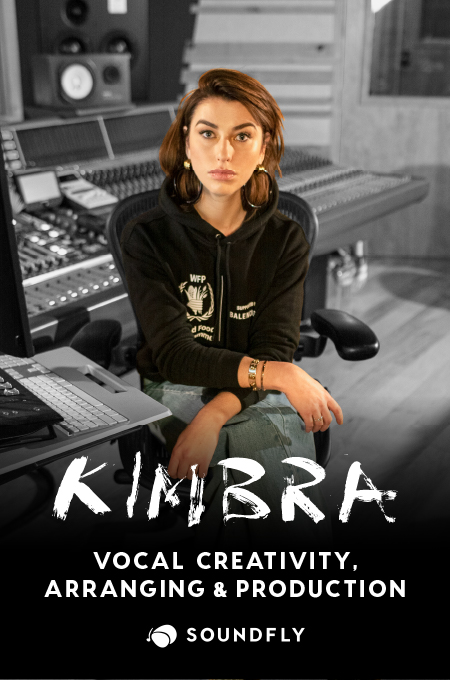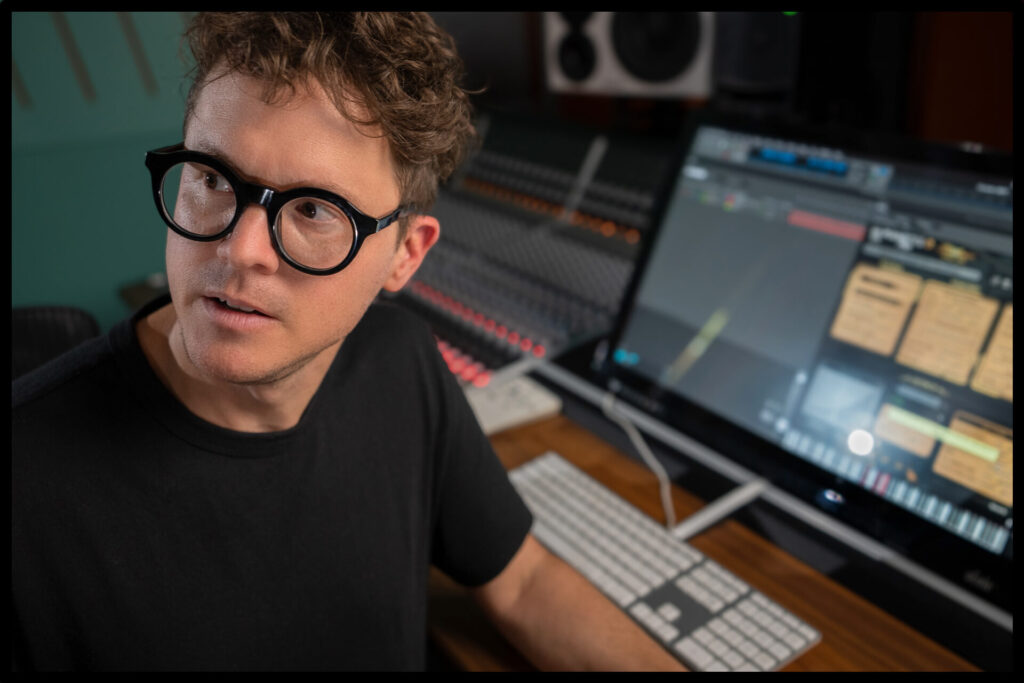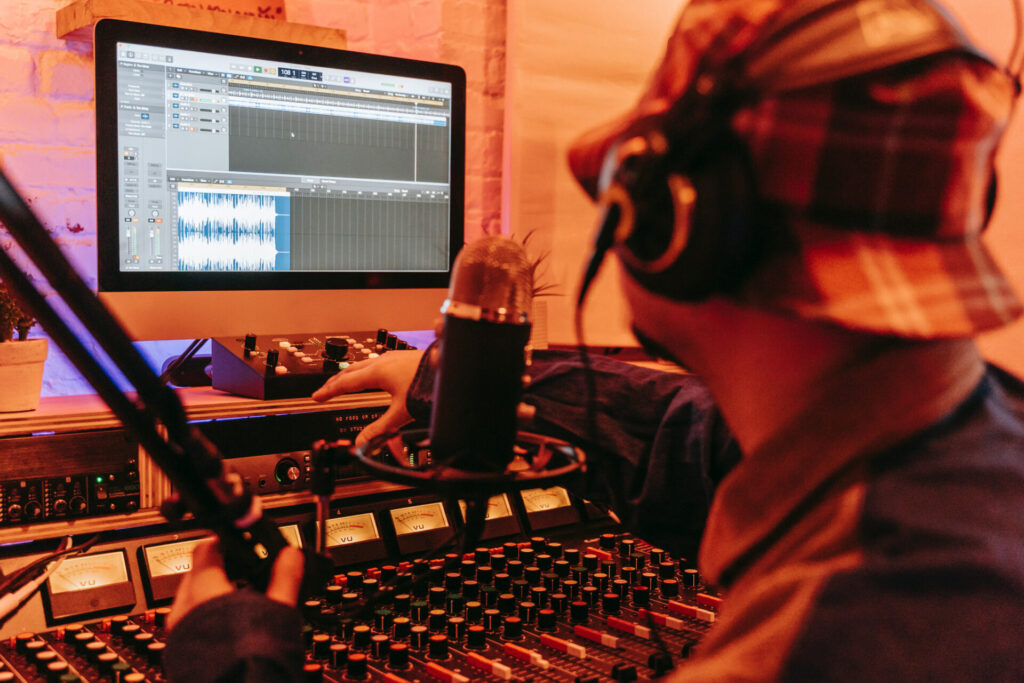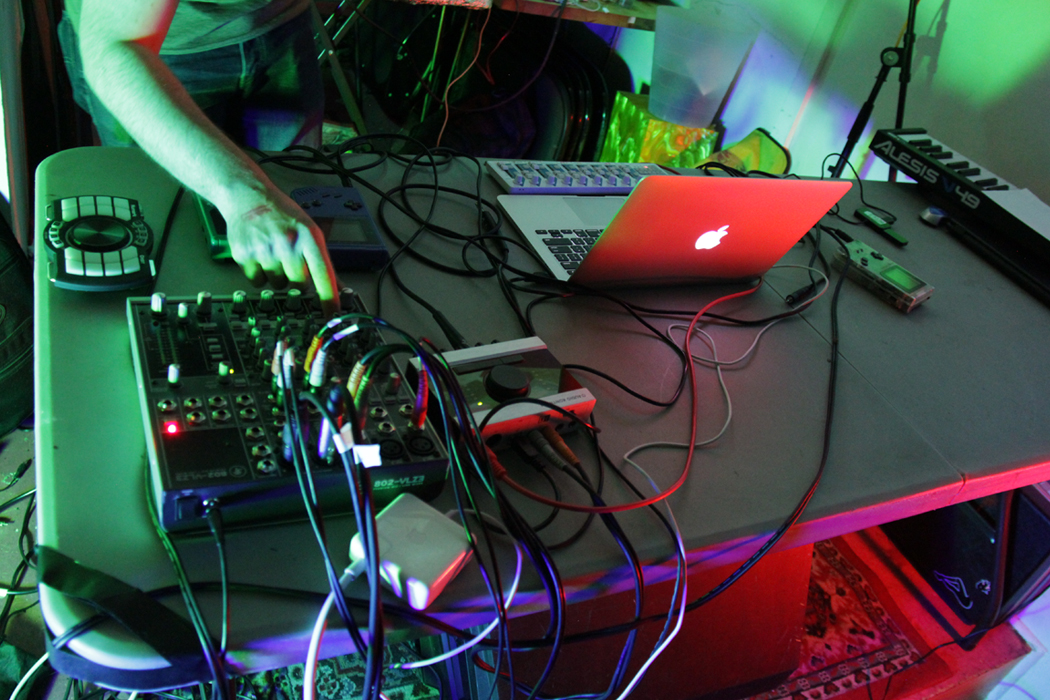
Pulsewave is the longest running event exploring chip music (a.k.a. chiptune or 8-bit music) in the country. These days, they throw monthly events at New York City’s gaming-culture-centric art space, Babycastles. But aside from providing audiences with cutting edge chip music and live visual performances, all making use of vintage video game systems as the basis or inspiration for the artists’ work, Pulsewave also provides an open stage for emerging, unknown artists to share their stuff!
Live music communities as supportive as this don’t come around too often. Their commitment to helping younger artists find their place in the chip music community has been helping this scene grow and thrive for years, both in NYC — through festivals and monthly events — and also globally — through curated SoundCloud playlists celebrating the work of emerging and established artists from all over the world.
We recently released the second installment of our ongoing chip music series, Chiptune Crash Course: Arranging in Four Channels, and to help support new chip artists, Pulsewave is making a brand new SoundCloud playlist, specifically to celebrate the work of Soundfly students! Join the course, learn how to make music using LSDJ, and put it in front of listeners everywhere.
The next Pulsewave event in New York City is happening on July 30, at Babycastles. If you’ve never been to a chip music show, I highly suggest trying it out. There’s nothing in the world like it! Find the details for the event here. In the meantime, take a look at last month’s Pulsewave chiptune jam…
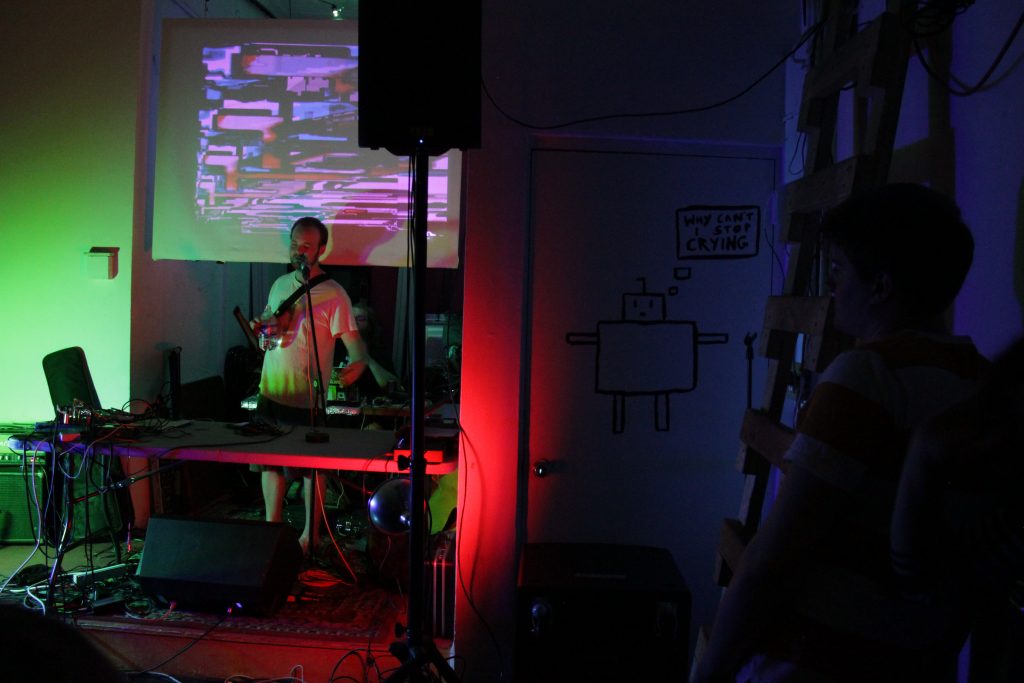
The first act of the night featured music by subPixel, a mean guitarist who waxed Zappa-esque and played alongside 8-bit visual compositions that truly complemented the frenetic, yet emotionally charged music!
+ Read more on Flypaper: “The 10 Most Widely Influential Synths Ever”
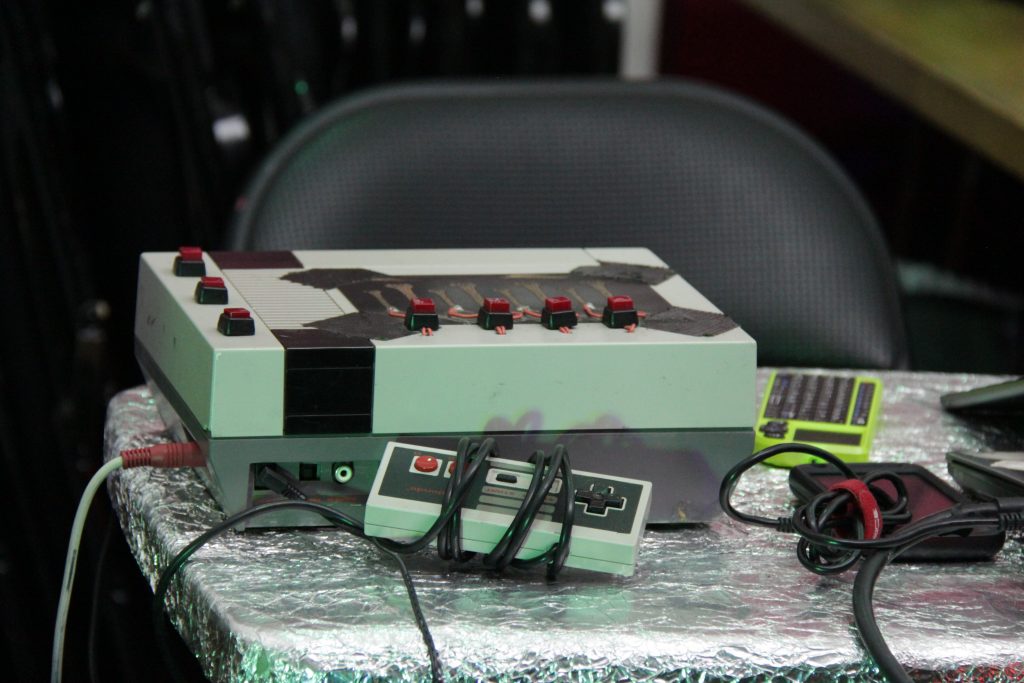
In fact, the visual projections played a large role in developing the energy and electricity of the evening. DIY_destruction sat behind the projection screen all night long, monk-like, manipulating light to make our human eyes blissfully disoriented. Here is his hacked Nintendo console that he uses to create his visual stimuli!
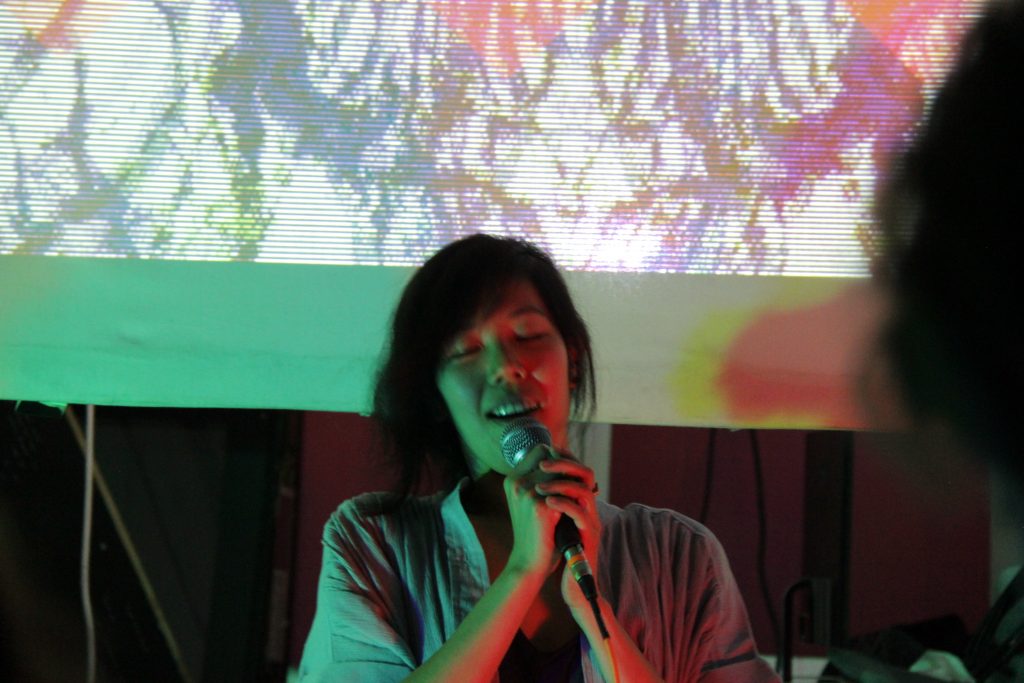
The second act of the night was brought to us by guitarist, keyboardist, and violinist, azuria sky, playing her very first show using a live instrument as a chip artist. It certainly didn’t seem like her first anything. She very quickly had the audience in the palm of her hand, controlling us with her songs. Pulsewave’s reputation for opening their stage to newcomers could not have been more on-point this evening — everyone was excited to hear what azuria sky had been working on!
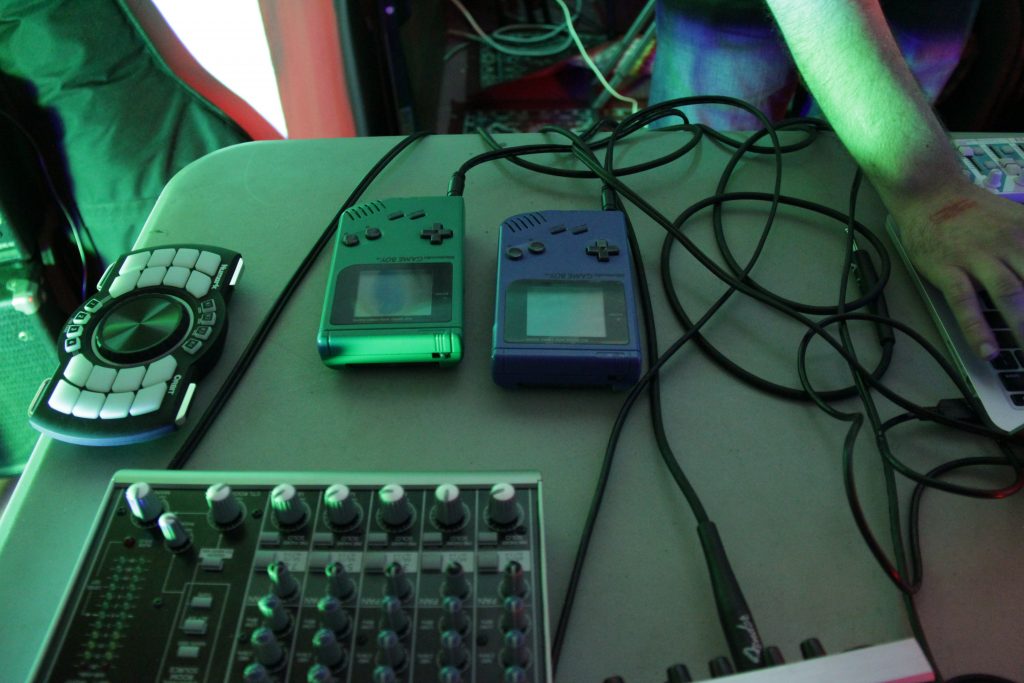
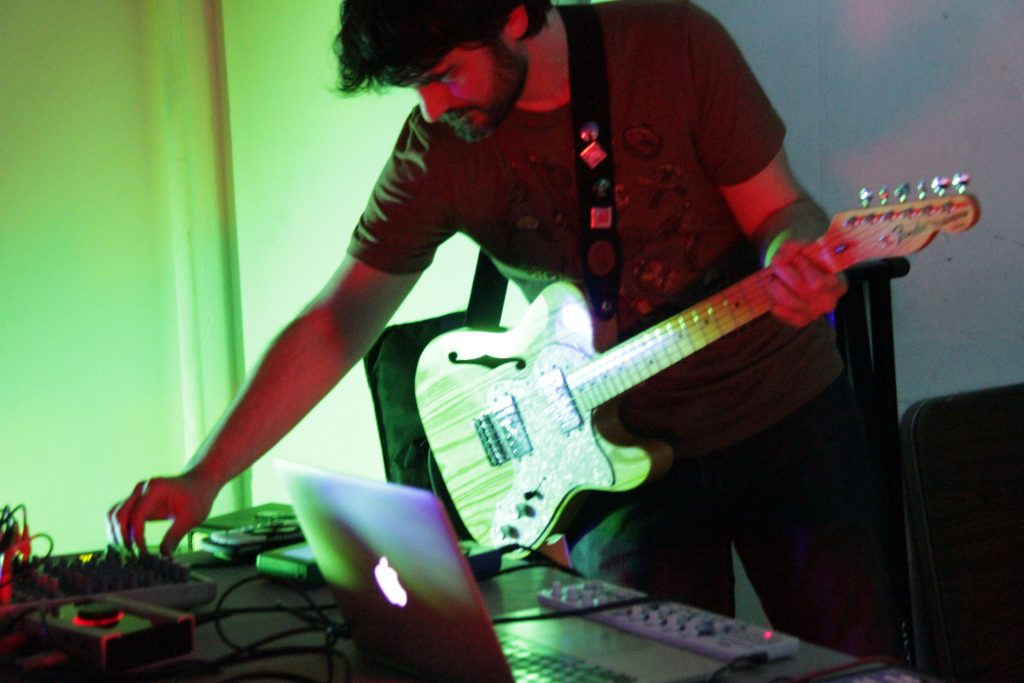
And finally, the instructor of our very own Chiptunes Crash Course series, Chipocrite, took the stage. He wielded his Fender Telecaster for the majority of his set, playing alongside a dense mesh of Game Boy triggered beats and bass like a true pro!
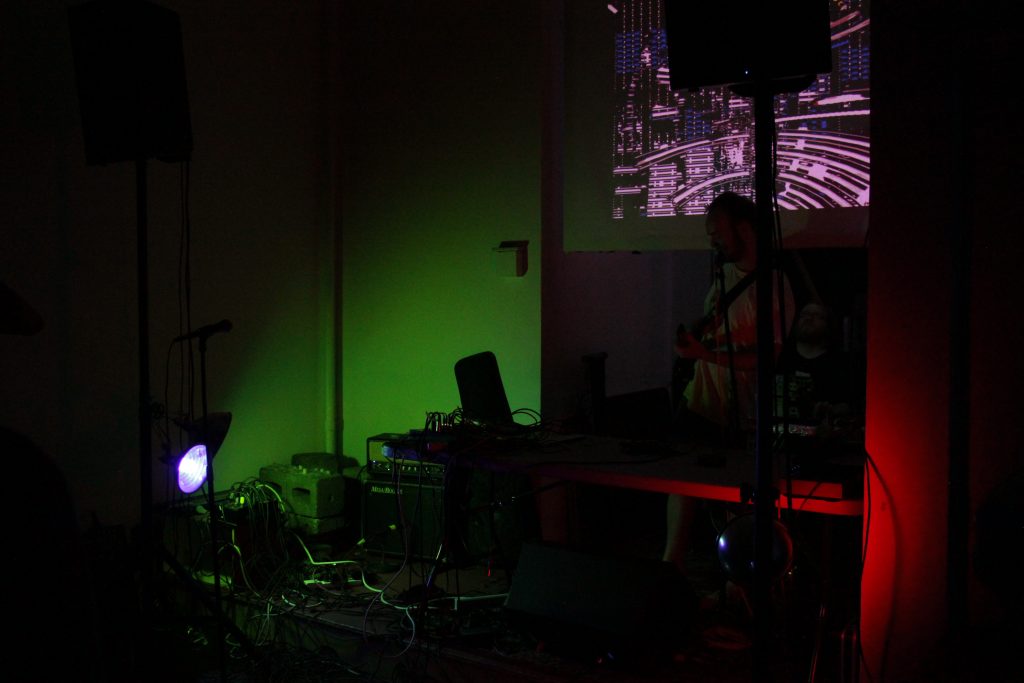
Note subPixel lurking in the shadows.
+ Read more on Flypaper: “8 Influential Chiptune Artists Who Pioneered the Genre”
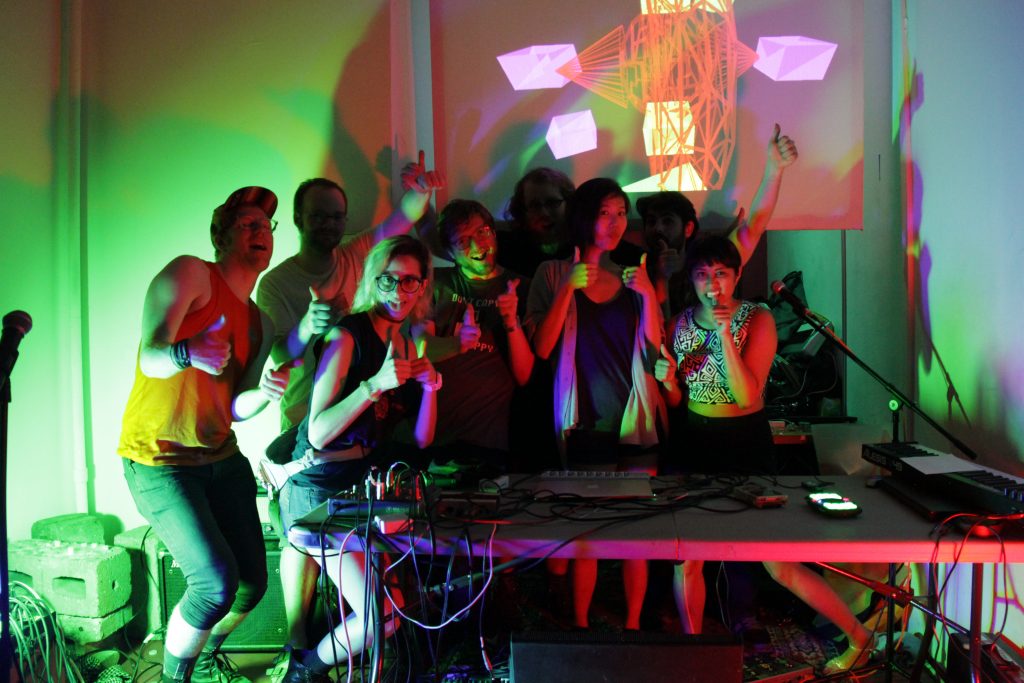
A final reminder at the end of the night of the community that works hard and plays hard to put this all together every month!
Head out to July’s Pulsewave chiptune show July 30th at 8pm at Babycastles in Manhattan!
